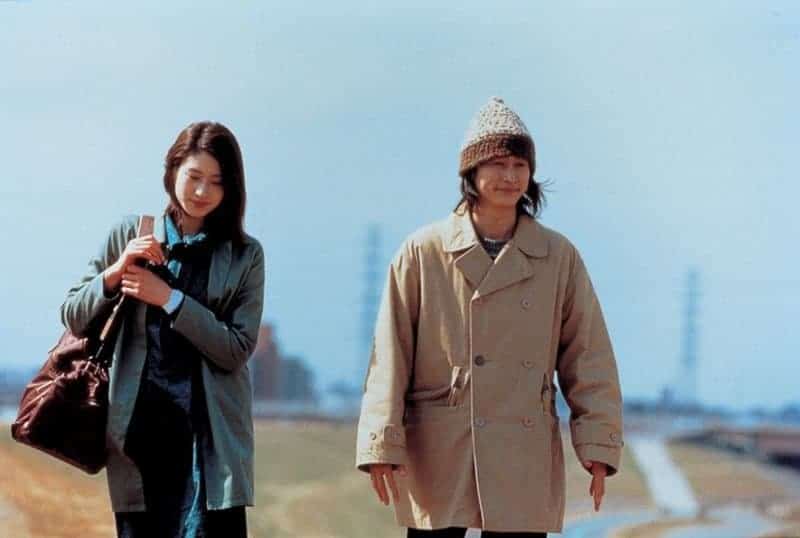Graduation project of Kosuke Nakahama, an alumnus of Osaka University of Arts who acted as director, producer, screenwriter, and editor as well as having a hand in the art direction, “B/B” is a film that has dissociative identity disorder as its base, but goes into a number of different directions.
B/B screened at Skip City International D-Cinema Festival

In an imaginary 2020, the Tokyo Olympics have been cancelled due to the Olympic Minister's corruption, and there was a failed poison gas attack by a new religion. In the shadows of these two major events, the brutal killing of a convenience store owner also has taken place, with the incident dubbed “Icarus” by the police. As the movie begins, Sana, who had contact with the owner's son, Shiro, is being interrogated by a police officer and a doctor, while it is soon revealed that she suffers from dissociative identity disorder, as she begins to narrate the events from the perspectives of the different personas residing in her mind. As the borders between her imagination and reality become thinner, a rather harsh story of abuse is revealed, and not even the interrogators can feel safe from Sana's remarks.
The first thing one will notice in Kosuke Nakahama's 77-minute feature is that the pace is torrential, as implemented by the thunderous delivery of the dialogue, the many and almost constant cuts to the person speaking, and the juxtaposition of Sana's narration of the past with what is happening at the present. At the same time, the multiple personas that appear simultaneously during her narration (an obese girl, a manga-esque one, two people dressed as samurais, one more comical and one more serious, etc) give a distinct essence of slapstick hilarity to the narrative, which also extends to the interrogation. Moreover, the many “nerd” references, including manga, anime, and video games add another element of humor in the film, particularly in the way they appear in the most unexpected moments.
Furthermore, the way Nakahama gradually reveals what is going on, leaving the viewer perplexed for a significant part of the movie, also works quite nicely here, retaining the interest for the majority of the feature, while the gradual change towards a serious drama revolving around child abuse, bullying, and their consequences, also moves towards the same direction.
Lastly, another juxtaposition, that of the stage-play premises of the present arc which unfolds inside a room and the many changes of setting in the past arc, adds much to both the narrative and the overall visuals of the films.
Where the narrative falters a bit though, it is in the way Nakahama tried to include too many elements (as mentioned above) by retaining this non-stop rhythm from beginning to end, resulting in the movie becoming somewhat tiresome to follow, after a point. On the other hand, the aforementioned combination of (slapstick) comedy, whodunit and thriller definitely compensates, as much as Karen's excellent performance as Sana.
“B/B” can be a bit too intense and quirky at times, but in general, emerges as a rather different and quite entertaining mash up that also manages to present its social comments eloquently














